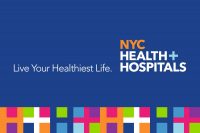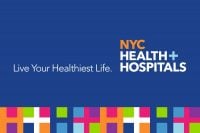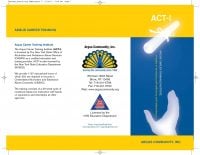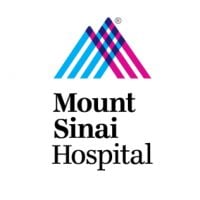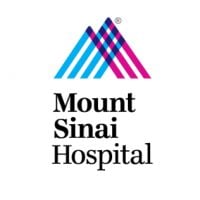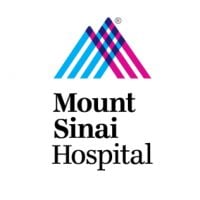Harlem Hospital Center - Chemical Dependency Outpatient Service
Drug Rehab Center in New York, New York
Harlem Hospital Center's Chemical Dependency Outpatient Service is a premier addiction treatment facility that offers comprehensive and evidence-based clinical interventions, holistic therapies and aftercare support to help clients transition into healthy lifestyles.
About This New York Facility
Harlem Hospital Center - Chemical Dependency Outpatient Service, located in New York, NY, is a reputable treatment facility that specializes in addressing opioid addiction, substance abuse, drug addiction, and mental health issues. This facility is accredited by SAMHSA (Substance Abuse and Mental Health Services Administration), JCAHO (Joint Commission on Accreditation of Healthcare Organizations), and holds a state license. With its affiliation to The City of New York, Harlem Hospital Center offers a comprehensive range of services to individuals in need of treatment and support.
In addition to their certifications, Harlem Hospital Center - Chemical Dependency Outpatient Service provides various services for individuals struggling with addiction and substance abuse. Their offerings include drug rehab, both inpatient and outpatient programs, detoxification services, dual-diagnosis treatment, and aftercare support. By adopting a holistic approach, this facility addresses the physical, emotional, and psychological aspects of addiction, ensuring comprehensive and personalized care for each patient. With a focus on providing evidence-based treatment, Harlem Hospital Center strives to help individuals overcome addiction and achieve lasting recovery.
Genders
Ages
Modality
Additional
Accreditations
State License
SAMHSA

JCAHO
Conditions and Issues Treated
Substance Abuse + Addiction Treatment
Substance abuse typically leads to addiction, which requires specialized treatment programs at Harlem Hospital Center - Chemical Dependency Outpatient Service to address. Many people benefit from inpatient drug rehabilitation, which includes inpatient acute care and residential rehabilitation. Other levels of care include intensive outpatient therapy, individual counseling, and support groups. Family therapy is also an essential part of treatment for substance abuse.
A combination of treatments is often needed to treat drug abuse issues effectively. In the case of drug abuse, there is no easy answer or one-size-fits-all cure.
Opioid + Opiate Addiction Treatment in New York, NY
Opioids are a series of medicines that are used for pain relief. Opioid addiction refers to the compulsive pursuit of opioids, even though they are not medically needed. Medication-assisted therapy at Harlem Hospital Center - Chemical Dependency Outpatient Service in New York, NY requires care in which both medications, medication, and behavioral treatments are used.
Dual-Diagnosis
Substance use disorder falls under two categories: Alcohol or Drug Abuse and Drug Dependence. An individual suffering from a substance use disorder and mental health disorders is said to have a co-occurring disorder or a dual disorder.
Individuals with substance use disorders and mental health problems are said to suffer from a ‘dual diagnosis’. The most frequently identified mental health issues found in individuals with substance use disorders include anxiety, depression, schizophrenia, and schizoaffective disorder.
Levels of Care Offered at Harlem Hospital Center - Chemical Dependency Outpatient Service
This center offers a variety of custom treatment tailored to individual recovery. Currently available are Aftercare Support, Detox, Drug Rehab, Dual-Diagnosis, Inpatient, Outpatient, with additional therapies available as listed below.
Drug Detox
Detox is a drug rehab process that is designed to remove the drug addict from the drug safely. The problem with solely using detox as a sobriety tool is that it alone provides no therapy or counseling. If a person goes through detox and returns to their everyday life, they may begin using again once the detox has worn off.
Detox does not help with cravings, so for some addicts, this can be extremely difficult and should be both done and supervised by medical professionals. Aftercare is crucial, so selecting a facility that offers additional services is important.
Inpatient Rehab in New York, NY
Inpatient treatment for addiction is generally not as scary as it might sound. It is a way to find recovery while being in a supportive and controlled environment. The duration of treatment at Harlem Hospital Center - Chemical Dependency Outpatient Service in New York can be different based on each individual. Many can leave after 28 days; some may stay a few months, and others may stay six months or longer.
Outpatient Program
When remaining at their job in New York, or continuing their studies, the individual may live with their family while utilizing Harlem Hospital Center - Chemical Dependency Outpatient Service‘s outpatient services. Treatment requires counseling the patient at the individual level, in a group setting, about substance addiction, drugs, and therapy sessions.
Aftercare support involves the support given to a New York, New York patient after they complete treatment. It helps them adjust to normal life. It may include setting them up in a halfway house and enrolling them in programs like Narcotics Anonymous (NA) and Alcoholics Anonymous (AA). Harlem Hospital Center - Chemical Dependency Outpatient Service‘s patients may also be provided with career training to help them get back into the job force.
Therapies & Programs
Individual Therapy
Individual professional counseling or individual therapy refers to the one-on-one interaction between a patient and his or her counselor at Harlem Hospital Center - Chemical Dependency Outpatient Service in New York, New York. Individual therapy allows for more privacy, one that group interactions can’t provide. It makes it easier for the counselor and the patient to deal with the central issues, which are likely the culprits of substance addiction.Couples Therapy at Harlem Hospital Center - Chemical Dependency Outpatient Service
Couples therapy aims to rebuild the trust between the partners. Partner’s involvement in the process will result in greater chances of treatment success. Couples therapy addresses financial issues, loss of trust, lack of intimacy, and physical abuse.
Family Counseling + Therapy
Family therapy is a set of therapeutic approaches that assumes that the entire family is a system. It utilizes the strengths and resources of the family to help the patient refrain from resorting to substance abuse. The impact of substance abuse is not just on the patient but on the entire family. Family therapy ensures that the patient gets adequate support from the family members after the treatment making the recovery process sustainable
- Family therapy guides all the members of the family to help the patient.
- It helps to repair relationships and improve communication between family members.
- It helps to keep the patient engaged and motivated throughout the treatment.
Group therapy is an important tool in recovery. Finding a peer group in New York, NY and others who relate to your situation is a fundamental tool for recovery at Harlem Hospital Center - Chemical Dependency Outpatient Service. Addiction tends to lead to isolation and feelings of uniqueness. The accountability and friendship that is found in group therapy can be more effective than any single other treatment approach. This is generally introduced early in recovery and is recommended as a lifetime treatment habit.
Rational Emotive Behavioral Therapy (REBT) is a variation of Cognitive Behavioral Therapy (CBT) that helps people understand how maladaptive, negative, and habitual thoughts and feelings lead to bad life choices. REBT is based on the idea that people operate under many irrational but habitual patterns of thought that fuel harmful practices.
The first three steps depend on the patient, so they are more specific and situational. The succeeding four steps center on practical issues brought on by substance abuse. Steps 8 and 9 deal with the social and emotional repercussions of addiction, encouraging patients to make amends to people they have wronged. These are followed by two steps revolving around the further exploration and reinforcement of Steps 1 to 9.
The last step requires an individual to extend a helping hand to people who are still in the early stages of their recovery.
Nutrition therapy, also called medical nutrition therapy (MNT), addresses the unique needs of the recovering person’s diet. Due to addiction’s devastating toll on a person’s physical health, healthy eating must be addressed as soon as therapy starts. A good diet helps boosts a recovering person’s ability to fully participate in Harlem Hospital Center - Chemical Dependency Outpatient Service therapy.
Payment Options Accepted
For specific insurance or payment methods please contact us.
Is your insurance accepted?
Ask an expert, call (888) 674-0062
The City of New York Associated Centers
Discover treatment facilities under the same provider.
Learn More About The City of New York Centers
Additional Details
Specifics, location, and helpful extra information.
New York, New York 10037 Phone Number(212) 939-3030 Meta DetailsUpdated November 25, 2023
Staff Verified
What else do people call Harlem Hospital Center – Chemical Dependency Outpatient Service?
People have occasionally also searched for “Harlem Hospital Center Chemical Dependency Outpatient Service in New York”
Patient Reviews
There are no reviews yet. Be the first one to write one.
New York, New York Addiction Information
More than 2 million New Yorkers are currently suffering from some type of substance abuse and many of those are minors. Alcohol abuse, in particular, is prevalent among those underage. As a result of the high prices and regulation of prescription drugs, many New Yorkers turn to heroin instead. This has led to a serious heroin epidemic in the state.
According to recent statistics, over 280,000 people in the state struggle with drug addiction. This accounts for approximately 8% of the population. In 2011, there were 1,532 deaths related to cocaine overdose in New York City. Currently, in New York City, there are over 3,000 people addicted to heroin and 1,700 addicted to cocaine. Most treatment plans offered in the area will involve some combination of detoxification, counseling, and medication.
Treatment in Nearby Cities
- Nyack, NY (19.1 mi.)
- Fresh Meadows, NY (10.0 mi.)
- Hudson Falls, NY (172.9 mi.)
- East Amherst, NY (288.4 mi.)
- Clifton Park, NY (140.6 mi.)
Centers near Harlem Hospital Center - Chemical Dependency Outpatient Service
The facility name, logo and brand are the property and registered trademarks of Harlem Hospital Center - Chemical Dependency Outpatient Service, and are being used for identification and informational purposes only. Use of these names, logos and brands shall not imply endorsement. RehabNow.org is not affiliated with or sponsored by Harlem Hospital Center - Chemical Dependency Outpatient Service.
